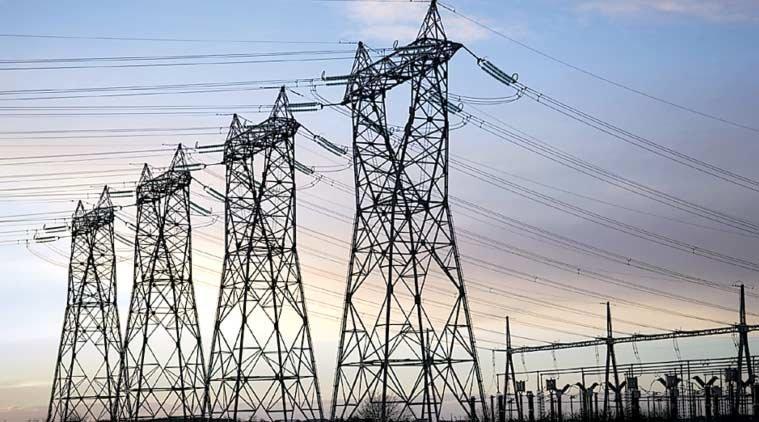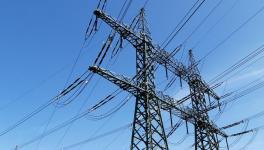Power Sector NPAs: New Report Slams Parliamentary Panel on Energy

A new report by Delhi-based Centre for Financial Accountability (CFA) has criticised the Parliamentary Standing Committee on Energy for its March 2018 report (37th Report) on stressed/non-performing assets in the power sector.
The Committee failed to fix accountability for the non-performing assets (NPA) or bad loan crisis in the sector and made only “vague” recommendations — while being uncritical of the impact of delicensing for thermal power generation, says the CFA report.
According to the Reserve Bank of India (RBI), a loan or an advance is classified as an NPA if its interest and/or installment of principal remains overdue for a period of 90 days in respect of term loan. ‘Stressed assets’ are those accounts where there has been delay in payment of interest/principal by a stipulated date — although they are not yet classified as NPAs.
As Newsclick had pointed out earlier, the Parliamentary Standing Committee report instead praises delicensing — brought about by the Electricity Act 2003, which opened the floodgates to the present mess with 34 stressed power assets worth more than Rs 1.74 lakh crore.
“The absence of licenses for generation of electricity has only provided an opportunity for the developers to eschew an inconsequential formality as sector have to be opened if we want to invite competition, efficiency, transparency and growth,” the Committee report had said.
The CFA report — titled A Missed Opportunity: A Critique of ‘Stressed/Non-Performing Assets in Electricity Sector’ by the Parliamentary Standing Committee on Energy (March-2018) — was released in the beginning of September.
It says that while the Committee identified a range of reasons for the power plants becoming stressed, it shied away from acknowledging the roots of the problem, let alone offer concrete solutions.
The reasons listed by the Standing Committee report for the high NPAs in the power sector are:
• Non-availability of Fuel:
– Cancellation of allotted coal blocks (in 2014, the Supreme Court had cancelled 214 coal block allocations from 1993 to 2010 declaring the allocations as illegal and arbitrary)
– Projects set up without fuel linkage
• Lack of enough Power Purchase Agreements (PPAs) by states
• Inability of the promoter to infuse the equity and working capital
• Contractual/tariff related disputes
• Issues related to banks/financial institutions (FIs).
• Delay in project implementations leading to cost overrun.
• Aggressive bidding by developers in PPA.
However, these reasons provide “only a partial picture in analysing the NPA crisis of power sector, as many aspects have been overlooked by the Committee,” the CFA report says.
It says the Committee had taken a “soft stand” on the promoters as well as lenders by “identifying the external economic factors as the root cause of the problems rather than taking a critical look at the lack of due diligence exercised by the banks and their weak lending practices.”
A Parliamentary Standing Committee is expected to represent the concerns of the public, but it failed to fix responsibility as to who should be held accountable for the tremendous losses being caused to public sector banks — which is a loss of public money.
The Committee also did not engage with “stakeholders, such as bank unions, labour unions, bank account-holders (as it is their money being used to fund these projects) and project-affected communities.”
It adds that the Committee emphasised more on “market-oriented solutions” for dealing with stressed assets, such as taking steps for boosting the demand for power, but did not touch upon “the role of welfare state in addressing the energy inequity, which deprives millions of people the access to electricity.”
Instead of coming up with concrete solutions or specific action items, “the Committee tried to outsource its task by requesting bodies like Ministry of Power, RBI and the banks to chalk out solutions for the NPA mess, when they themselves had been largely responsible for the problem to spiral in to staggering proportions,” it said.
Besides, many of the recommendations “lack any tangible outcomes that could be measured if implemented. Similarly, some of the recommendations do not provide any alternative action plans that could be immediately put into action but only advises on further probing into the matter by different bodies.”
Here are the main points — as identified and classified by the CFA — in its critique of the report:
1. Lending Practices of Banks and Financial Institutions:
The CFA says there has been a blatant lack of “due diligence” by the banks when it came to granting loans, along with the lack of a “transparent process” in the sanctioning of a loan. Moreover, the banks have no clear policies for exercising due diligence while lending.
But while the Committee report at one place did recommend a reassessment of the process of granting loans, it “did not provide any specific details as to how the process of granting loans and its monitoring can be overhauled.”
The CFA report said public sector banks “should make disclosures on the basis with which they lend to large infrastructure projects, as this act involves public money and hence, people rightfully must be apprised of those decisions that impact them.”
2. Role of Promoters in Unviable Projects
The CFA says the Committee had not been critical of “the failure of the banks/creditors to recover money from the defaulters.”
“Thus, the current system has become an easy escape route for the promoters to take large-scale loans for unviable projects from the banks and such other financial institutions and later on conveniently fall back on their inability to repay the loans.”
The CFA said there had been allegations of collusion between promoters of power projects and bank officials, “wherein certain bank officials have personally benefited from the sanctioning of unviable projects and later have shown to be helpless in recovering the loans from the defaulters, thereby colluding in squandering away of public money and damaging the faith in Public Sector Banks.”
Further, there have also been instances “where bank officials have faced political interference” due to close ties of private/corporate promoters with political parties, which forced the banks to take “irresponsible decisions”.
3. Fixing Accountability within Banks and FIs:
The Committee did not pay attention to the matter of accountability within banks and financial institutions over who should be held responsible and accountable for the disastrous decisions taken by the banks and financial institutions.
4. Squandering Away of Public Money:
The Committee also took a “soft stand” on the private/corporate promoters of these power plants, who “joined in the mad rush only to extract a share of the pie in the power production.”
The Committee did not question the role of these promoters “who sought money from the banks for these projects when they clearly did not have enough money to invest in these power projects so as to make them financially viable.”
There have also been cases of “wilful defaults” by these private promoters of infrastructure projects, and the promoters ought to be held liable.
As the CFA highlighted, many of the promoters of the 34 stressed power projects had no prior experience in carrying out infrastructure projects, which is why the experience and background of promoter groups need to be “compulsorily taken into account” by the government and the banks.
The CFA also pointed out how public money has been used numerous times to bail out these projects, “wherein the Public Sector Banks have either written off NPAs or have given interest moratorium or have charged lower rates of interest than what was agreed earlier.”
But the Committee failed to come up with specific action plans for recovery of loans from these promoters, which would prevent other private companies in the future from “squandering away the public money borrowed in the name of projects.”
5. De-licensing Leading to Haphazard Growth of Sector:
The Committee entirely overlooked the devastations wrought by delicensing — which meant that any company could set up a thermal power plant, without requiring to obtain a licence first, as long as it complied with certain technical standards relating to grid connectivity.
But, as Newsclick has pointed out before, the companies had to arrange everything required to produce power on their own — such as land, water, procuring the coal linkage through the fuel-supply agreements, finance options, and obtaining the necessary clearances. Even the sale of power through the power-purchase agreements (PPAs) with the state-owned distribution companies (discoms) had to be arranged by the private developer of the power project through the tariff-bidding process, which was also brought in with the 2003 Act.
The CFA report says that the Committee “overlooked” the fact that “the decision to set up a power plant is taken by a promoter based on his own assessment and hence, it is only reasonable that the profit or loss out of a venture is to be borne by the promoter himself. So the burden of the decisions of the promoters for private projects should not fall upon the government, banks or public.”
Delicensing led to unplanned and haphazard capacity addition. And while the Committee acknowledged that delicensing had led to a surge in thermal power plants — it was not at all critical of the strategy of delicensing, “which for all practical purposes has failed to keep a check on the haphazard growth in the number of power plants in the country eventually leading to the grounding of a large number of power plants as stressed assets.”
The CFA report says that the Committee should have instead advocated re-introduction of licensing so that the growth of power sector in the country can be regulated.
6. Lack of PPAs and Fuel Supply Linkages:
In the aftermath of the Electricity Act 2003 — which was aimed to specifically, aggressively push private companies to enter thermal power generation — power projects were being financed by banks and financial institutions without making sure the pre-requisites were in place, such as PPAs with the power distribution companies (discoms) and Letters of Assurance (LoAs) from coal producing companies for supply of coal.
As the CFA report points out, in most cases discoms enter into a PPA with the private power producers “only when the power plant is at least 80% complete”, as the Committee was informed. Besides, “the Letter of Assurance (LoA) from coal producing companies is issued only after a Letter of Intent (LoI) is issued by the discoms.”
But the financing of these power projects was happening “in the anticipation that PPAs and LoAs would eventually fall into place for the power plants.”
However, not all of these plants were able to secure PPAs and even LoAs for coal, which led to the eventual piling up of stressed assets in power sector.
“The Committee should have ideally come out with a recommendation to overhaul the system, where the financing of power plants would be contingent on ensuring that the PPAs and LoAs are in place for any power plant so as to prevent the possibility of these projects translating into NPAs,” the CFA report said.
Out of the stressed commissioned capacity of 24,405 MW, there are PPAs for only 16,129 MW, as the Committee report revealed. Similarly, coal linkage is available only for 11,050 MW of capacity — out of the total 40, 130 MW stressed capacity.
7. Over-projection of Demand:
The CFA said the government had “clearly done an unrealistic over-projection of the demand of power in the country”, which led to the plants “running at a much lower Plant Load Factor (PLF) than what is required for them to be profitable.”
But as the CFA report clarifies, the “weak demand” was not due to lesser requirement of electricity by people, but was “limited by their purchasing capacity determined by the tariffs set by the markets.”
The Committee failed to address “the issue of lack of access to electricity for millions of people whose money is also being used to fund these projects (through banks and financial institutions) and who have to bear the brunt of these power projects over decades.”
The Committee should have stressed on the need for re-looking at the projections of future demand in the power sector, the CFA report said.
8. Restructuring of Power Sector Loans:
The Committee made a recommendation that Strategic Debt Restructuring Scheme — a loan restructuring scheme for dealing with stressed/non-performing loans — should be exercised only in situations where it was established that negligence on the part of the management was the only reason for a project to be stressed.
But this is a futile recommendation — given that the RBI in its February 12, 2018 circular (on the revised framework for the Resolution of Stressed Assets) had scrapped various loan restructuring schemes, including SDR.
Therefore, this recommendation “did not hold any ground”. The Committee report was submitted to Parliament on 7 March 2018.
9. Apathy towards Paris Agreement:
The CFA said the Committee should have “paid attention to the mounting pressure on the Coal India Limited to excavate more coal, in the event of the thermal power plants growing in large numbers, thereby putting further strain on our limited natural resources and also damaging the environment.”
The Committee did not show any concern towards the Paris Agreement adopted in 2015, where India “made a commitment towards reducing its carbon emissions and giving a push to renewable sources of energy.”
Get the latest reports & analysis with people's perspective on Protests, movements & deep analytical videos, discussions of the current affairs in your Telegram app. Subscribe to NewsClick's Telegram channel & get Real-Time updates on stories, as they get published on our website.
























